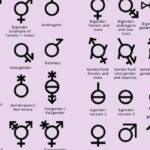Gender Ideology
JK Rowling delivers devastating takedown of Nicola Sturgeon’s pro-trans memoir
I have never read one of JK Rowling’s books, but after reading her savage review of former First Minister of Scotland Nicola Sturgeon’s new pro-transgender memoir, I wondered what I might be missing. It is, without doubt, one of the most devastating takedowns of a politician that I have ever read, which is why it has been making headlines on both sides of the Atlantic for days.
Sturgeon was an early supporter of the transgender agenda. During the 2016 Scottish election, she committed to reviewing and reforming “gender recognition” laws in the Scottish National Party’s manifesto, which trans activists rightly recognized as a promise to make switching one’s gender identity on government ID by obtaining a “Gender Recognition Certificate” easier.
Plans were put on hold first due to fierce public debate, and then COVID, but Sturgeon did not waver. In 2021, she renewed her commitment to introduce “self-ID,” eliminating the need for a medical diagnosis to change gender and lowering the age for GRC applications from 18 to 16. When women’s rights advocates expressed concerns about trans-identifying males in female spaces, she dismissed them out of hand. The Gender Recognition Reform Bill passed in December 2022.
In January 2023, the U.K. government blocked Sturgeon’s bill, citing a conflict with U.K.-wide equality laws; Sturgeon was furious, calling it a “full-frontal attack” on Holyrood. However, her planned political response was railroaded by the infamous Isla Bryson case, in which a trans-identifying man convicted of raping two women was placed in a women’s prison. Sturgeon stuttered in the face of public outrage at the logical consequence of her policies and could not even coherently answer whether Bryson was a woman.
On February 15, 2023, Sturgeon resigned as both First Minister and SNP leader, stating that the internal and public debate about trans issues – and her position on them – were factors; the following year at the Charleston literary festival, she claimed that trans-identifying people were used against her career like a “battering ram” and that the abuse she faced for her positions was a factor in her resignation. In 2025, she made the same case in a memoir titled Frankly, which also reaffirms her commitment to the trans agenda.
JK Rowling, one of Sturgeon’s longtime opponents and a prominent critic of transgender ideology, is having none of it.
Rowling’s entire review is a take-no-prisoners indictment of Sturgeon’s maudlin prose, her perpetual, mewling self-congratulation, and her various political positions. But Rowling saves her most eloquent ire for Sturgeon’s defense of the transgender agenda, and her insistence on presenting herself as a victim of misogyny:
Notwithstanding all the ruminating on sexism and misogyny Sturgeon does in Frankly, always as it affects her personally, she is unshakeable in her belief that if men put on dresses and call themselves women they can only be doing so with innocent motives. Sturgeon hasn’t been remotely humbled by the Supreme Court ruling that proved her government was forcing a misinterpretation of the U.K.-wide Equality Act on Scotland, one that robbed women of many single sex spaces and of their very existence as a definable class with rights protected in law. She remains stubbornly wedded to her belief that it is possible to let some men into women’s spaces on the men’s say so, without letting any man who fancies it come inside. She denies there are any risks to a policy of gender self-identification. She can’t imagine any male predator capitalising on such policies, in spite of the fact that it has, demonstrably, happened many times. She is flat out Trumpian in her shameless denial of reality and hard facts.
Rowling then explains that the reason she famously chose to post a photo of herself wearing a shirt with the slogan “Nicola Sturgeon, Destroyer of Women’s Rights” is because she wanted to force journalists to ask the first minister questions that she was refusing to answer – and prompt Sturgeon to consider the perspectives of women she was resolutely ignoring. Sturgeon, Rowling states, is an elite who cannot imagine the fears of those who are actually hurt by the transgender agenda:
Sturgeon tells us in Frankly that she wants to eradicate misogyny directed at women in the ‘public sphere,’ i.e., famous people like her and like me, who’re sent sexualised threats and insults. ‘Sphere’ is an interesting word, isn’t it? So very close to ‘bubble.’ While Sturgeon is focused on making sure no hurty sexist words penetrate hers, she’s entirely dismissive of the harms done in actual physical spaces, where she expected nurse Sandie Peggie to deal with a heavy menstrual flood in front of a cosplaying man, and vulnerable female prisoners to accept being incarcerated with trans-identified male sex offenders. The First Minister, with her police protection, her carefully monitored official residence and her chauffeured car just couldn’t see what these bigots were making a fuss about.
Rowling then zeroes in on Sturgeon’s inability to say whether double rapist Isla Bryson was a man, despite having committed “the most male of crimes.” Her struggle, Rowling says, is a perfect example of why “self-ID” is suicide for women’s rights:
Nobody had warned her about Bryson, you see. She apparently had no idea that the very thing feminists had warned her was likely to happen, and had already happened – trans-identified man Katie Dolotowski had already sexually assaulted a ten-year-old girl in a public bathroom, and served his time in a women’s prison in Scotland – would happen again. She explains in Frankly that she was worried about the impact it would have on trans people if she denied Bryson was a woman.
Therein lies the problem in the smallest of nutshells. If you’re prepared to accept the foundational falsehood that some men are women, you’ll inevitably find yourself panicking like a pheasant caught in headlights one day, because to admit that even a single man who says he’s a woman isn’t means the whole edifice of gender self-ID collapses.
Well, exactly. But Sturgeon’s response was to accuse those pointing this out of a litany of hate crimes: “There are people who have opposed this bill (the Gender Recognition Act) that cloak themselves in women’s rights to make it acceptable, but just as they’re transphobic, you’ll also find that they’re deeply misogynist, often homophobic, possibly some of them racist as well.” In short, everybody who disagrees with Sturgeon is, according to Sturgeon, a reprehensible person, full stop. As Rowling writes:
This was Sturgeon’s ‘basket of deplorables’ moment, the quote that will – and should – be forever attached to her political legacy. Those words fell out of her mouth so easily and fluently they must have been either long suppressed or previously rehearsed, and in speaking them, she demonised and stigmatised not only women in her own party who’d believed in her integrity and worked hard to get her elected, but female survivors of sexual trauma, women with disabilities wanting same-sex care, lesbians asserting a right to associate without straight, cross-dressing men, everyone concerned about safety, privacy, fairness and dignity for girls, and regular women fighting not to be erased in law as a definable class with issues and needs specific to those with female anatomy.
Sturgeon has not yet responded to Rowling’s review, and I suspect she will not. After reading it, she may have regretted writing her memoir to begin with. After leaving politics dogged by those who reasonably insisted that she explain whether a male rapist who called himself a woman was actually a woman, she has attempted to reframe her career as the triumph of an ordinary girl who faced a torrent of misogyny and abuse.
JK Rowling decided not to let her get away with it – and she is perhaps the only writer who could successfully kill Sturgeon’s massive marketing campaign and comeback tour before it could really get started.








